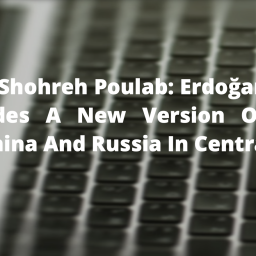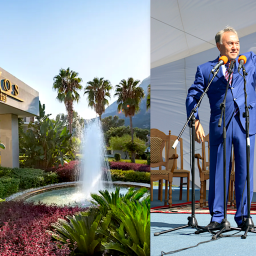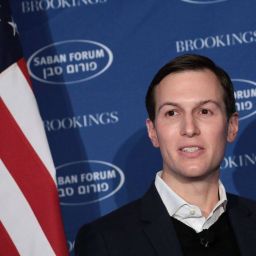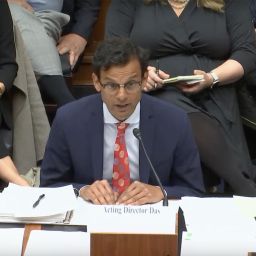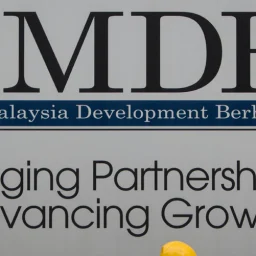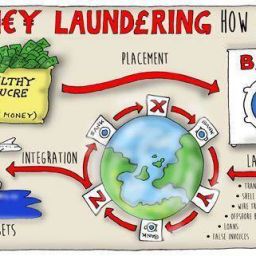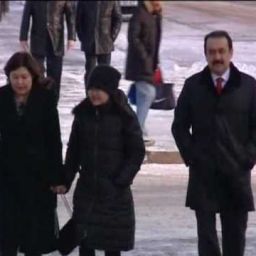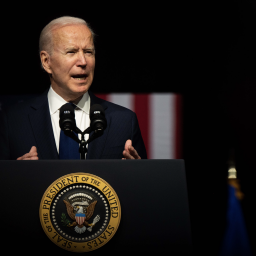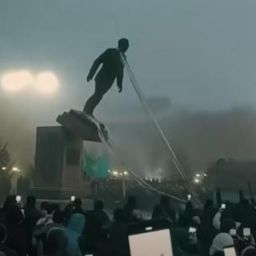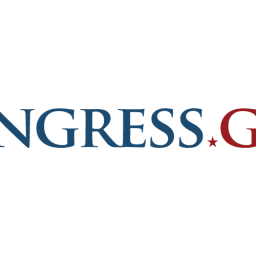REPORT OVERVIEW AND CONCLUSIONS
Even though Central Asian and Caucasus governments promised international
community to abide by the sanctions, a plethora of small and large businesses in those
countries owned by Russian oligarchs offer aid to Russia to evade sanctions.
Central Asian countries continue to serve as a transit hub between developed economies and
sanctioned Russia.
Obviously, like in the previous years it is hard to prove direct sanction evasion cases due
to the secretive nature of contracts and deals between Russian and Central Asian
companies. The central trade registries either not timely updated or continue to pose
bureaucratic obstacles to the public, making it hard for the latter to properly trace
movement of goods and services from the Central Asian countries, Caucasus, and China
to Russia. We are left with only one valid reference source – UN trade statistics, which
unfortunately and more so understandably, represents data for the past year with a slight
delay.
The most exploited routes for getting sanctioned products to Russia are through
Kazakhstan, Kyrgyzstan, Uzbekistan, Georgia, and Armenia, all of which except
Kazakhstan considerably increased their exports to Russia in the past year. This is
obviously, not to claim that Kazakhstanis are completely uninvolved in the sanction’s
circumvention aid to Russia.
China became a new hub for circumventing sanctions in 2023. China uses Central Asia
as an intermediary channel for getting products and spare parts to Russia to enable it to
continue atrocities in Ukraine. As sad as it can be majority of those parts are purchased
in the West. This is partly possible due to their membership in the Eurasian Economic
Union (EAEU), a Russia-led coalition of trade partners. Members of EAEU countries can
easily engage in trade partnerships with the outer world while enjoying free movement of
goods within the Union, creating an opportunity for sanctioned products to easily enter
Russia.
Above all other complications, Russia continues to enjoy a supply of the spare parts and
raw materials which enable it to produce weapons and munitions in quantities sufficient
to continue its aggression against Ukraine. Shockingly, billions dollars worth of microchips
for Russian missiles have been purchased from Western companies and shipped through
Central Asia.
While Russia and Belarus were sanctioned heavily by the international sanctions, the
West has not applied comprehensive sanctions to other members of the Eurasian
Economic Union. This permits the flow of products between Central Asia and neighboring
countries Georgia and Armenia. Sanctions have had an impact on the number of exports
entering Russia but simultaneously created a significant increase of goods entering the
Eurasian Economic Zone and Caucasus which still benefited Russia as the end user of
the product supplies.
Instead of rushing to apply secondary sanctions the Western countries chose to improve diplomatic and economic relations with the countries that are deemed to help Russian sanctions evasion. No effective systematic tools for monitoring the sanction evasion process have been developed so far. The US and EU continue to financially assist the countries
allied with Russia and continue the negotiation process with the possibility of a future integration of Central Asia into Europe.
This past year we have noticed an increase in migration of Central Asian businesses to
and out of Russia and a vice versa. While we are still working to understand the various
schemes, businesses are trying to establish to evade sanctions, we have an idea of the
structural base formed to support sanction evasion process. The key sanctioned figures
in Russia resign from their posts, buy businesses in Central Asia, and register the latter
under their names. In other words, they are changing companies’ ownership and
jurisdictions to remain in business and supply the Russian military industry with spare
parts and raw materials required to produce weapons and munitions.
Since the governments of these countries have agreed to abide by the international
sanctions more data became available on private companies’ deals. However,
governments seem to turn a blind eye to the bigger deals that is strategically important to
Russia and might fall within the interests of the regional political elite.
At the end of the report, we site two responses by the government agencies for our information request.
A trend is noticeable that Russia and their allied countries have started actively using third
countries that are not under thorough international scrutiny like China or the Middle East.
More cases of private companies were revealed that supply the Russian military industry
with dual-purpose goods, spare parts, and raw materials for weapons and munition
(missiles, drones, gunpowder, etc.).
Sanctions that predicted to have a longer-term effect have not yet started working. This
year, due to the tightened restrictions and threat of secondary sanctions, a few
businesses were caught and criminal cases against them were initiated. This however
has not stopped Russian physical faces and entities from circumventing sanctions.
In additional to geopolitical survival and continued aggression against Ukraine, Russia
has learnt how to circumvent sanctions and still make profits from their main strategic
resources like oil and gas. At the same time Western law enforcement agencies started
paying serious attention to their own Western companies that continue cutting deals with
Russia. By the end of 2023, it became clear that Western companies would be obliged
only to enter deals with counterparts that were willing to guarantee not to resell products
to Russia through enforcement of intellectual property rights.
In 2023 it is noticeable that the anti-war coalition did a better job of coordinating sanctions.
Yet sanctions observation is not monitored thoroughly and in 2024 more efforts would be
implemented to adapt techniques that will help to trace products to the end user. The
international sanctions policy was scrutinized in 2023 and faces more stricter approaches
in 2024. Key political figures in the West have underlined the importance of observing the
international sanctions and outlined the risks involved in helping Russia to evade
sanctions.
